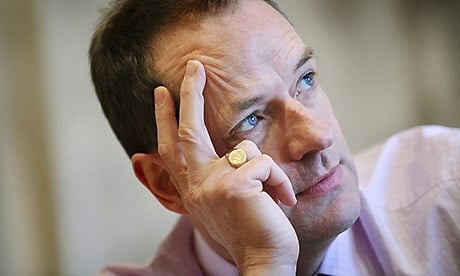
GSK’s Witty loses bonus over China scandal
pharmafile | February 28, 2014 | News story | Medical Communications, Sales and Marketing | China, GSK, Witty, sales, sir andrew
GlaxoSmithKline’s chief executive Sir Andrew Witty received bonuses “lower than they otherwise might have been” last year due to the bribery scandal in China that erupted last summer.
Sir Andrew missed out on receiving his maximum bonus for 2013 despite exceeding the board’s performance targets.
However, his remuneration still leapt by a healthy 62%, enhanced by bonuses and performance payouts of £5.4 million, after the company had six new drugs approved including medicines for melanoma, HIV and respiratory diseases.
GSK’s shares also rose by 20% last year according to its annual statement, and the firm pointed out that it delivered its best financial return to investors since its creation through a merger of Glaxo Wellcome and SmithKline Beecham in 2000.
But its performance was marred by the ongoing bribery scandal as Chinese officials raided GSK’s offices and accused the company of using a £320 million fund to offer cash, prostitutes and gifts to doctors.
A spokesman for the company said the reduction was solely due to the reputational damage of the investigation by Chinese authorities.
In fact, the source said that Sir Andrew’s pay reflected a ‘very strong performance’ and that his bonus would have been £250,000 higher had it not been for the scandal.
“His bonus has been reduced from the maximum possible as both Andrew and the board are mindful of the impact the investigation in China has had on the reputation of the company,” the spokesman told The Daily Telegraph.
The board nonetheless praised Sir Andrew’s “strong leadership of GSK in what remains a challenging environment for healthcare”, he added.
Sir Andrew was awarded a bonus of £1.8 million for 2013 out of a possible £2.1 million. This was more than double the £905,000 he received in 2012, although that amount in turn had been reduced from his 2011 bonus of £2 million, due to sharply falling sales in the eurozone.
The bonuses of Simon Dingemans, chief financial officer, and Dr Moncef Slaoui, head of research and development, also fell short of their maximum amounts as they received £886,000 and $1.9 million (£1.1 million) respectively.
Criticism
Luke Hildyard, the head of research at the High Pay Centre, told The Times that this was an inadequate adjustment: “Witty is ultimately responsible for a company at the centre of a major – and unresolved – bribery scandal.
“It would be interesting to see how his £3 million pay rise compares to the treatment of lower-ranking GSK employees who might have committed a trifling mistake or misdemeanour at work over the past year.”
GSK’s China sales, which only account for around 3% of its global revenue, fell by 18% last year, given the fallout from the scandal.
The company has admitted that its own investigation into the allegations unearthed evidence of wrongdoing by a number of sales staff, but maintains they ‘worked outside’ GSK’s control systems and is now co-operating with authorities in the country.
Ben Adams
Related Content

GSK’s Exdensur receives MHRA approval for asthma and rhinosinusitis
GSK’s Exdensur (depemokimab), a twice-yearly biological medicine, has received approval from the UK Medicines and …

Multiple myeloma treatment approved in Japan
GSK’s Blenrep (belantamab mafodotin) combinations have been approved by Japan’s Ministry of Health, Labour and …

CARBOGEN AMCIS manufacturing license advances services in China
Swiss pharma manufacturing company, CARBOGEN AMCIS, has announced that its facility in Shanghai, China, has …





